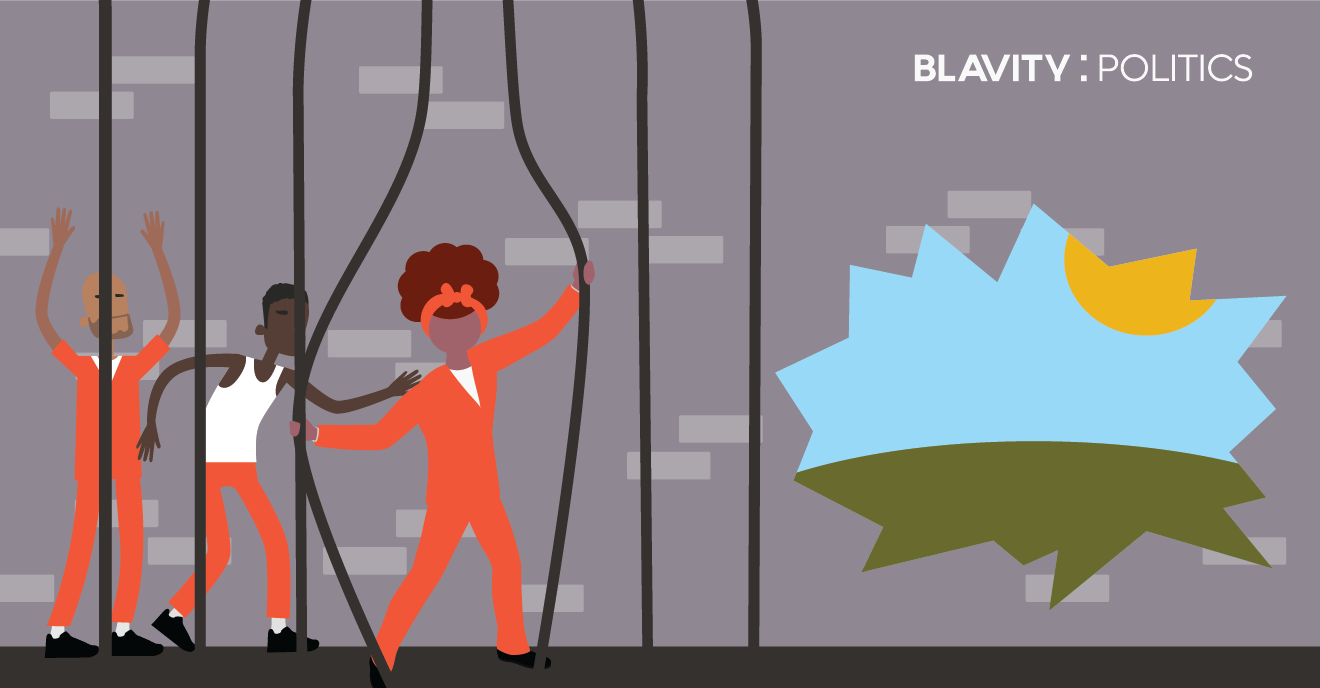This is the weekly column written by Blavity:Politics Senior Editor Kandist Mallett.
The abolitionist movement was crucial to helping end slavery. Without people like Harriet Tubman, Frederick Douglass and Henry “Box” Brown, the abolition of slavery might have not been possible.
As we look at our current prison and jail system, which many see as modern-day slavery, it is important for there to be abolitionists willing to help those who are incarcerated gain their freedom, as well.
In cities like Los Angeles and New York, there is a growing movement among activists and community organizations to stop the further development of jails. Abolition is no longer just a topic for those who are deemed to be radical, but rather, it has become a more accepted idea.
A 2018 poll from the Vera Institute of Justice found that 67% of Americans were not in favor of building more jails and prisons. A separate poll conducted by the Justice Action Network in 2018 found that 85% of the respondents thought that rehabilitation should be the goal of the criminal justice system instead of incarceration.
In Los Angeles, a coalition of community organizations and activists successfully defeated the county's proposal to build a $1.7 billion mental health jail in Downtown Los Angeles. The Los Angeles County Board of Supervisors agreed to invest that money into community resources to help with mental health and substance abuse instead.
Supervisors Hilda Solis and Sheila Kuehl authored the motion, with Solis saying in a statement, “Men’s Central Jail [a jail in Los Angeles] must be demolished, but we must replace it within a criminal justice system that includes a modern, decentralized countywide continuum of non-custody community-based care facilities.”
This statement from a sitting representative shows how the momentum of closing jails has spread into the political mainstream.
It was announced by New York city officials that the notorious Rikers Jail, which has not been a stranger to controversy throughout the years due to its poor living conditions, would close by 2026. In its place, the city wants to open up four borough-based jails in Queens, Brooklyn, Manhattan and the Bronx.
No New Jails NYC, who describes themselves as a “multiracial, intergenerational network of residents, community members, and activists fighting Mayor Bill de Blasio’s jail expansion plan” on their website, has been pushing the fight against building new jails. When the city initially announced that it would close Rikers and create four alternative jails through the city, groups like the Bronx Defenders, who are a group of public defenders, originally supported the effort.
In a recent statement, the Bronx Defenders stated, “We do not believe anyone belongs locked up in a cage. We believe that caging people pre-trial is fundamentally at odds with the presumption of innocence. We believe all incarceration is inherently violent, oppressive, racist, and destroys human dignity.” They went on to say, “And so, as public defenders, we fight against all incarceration and for total liberty.”
Even as abolitionism grows more mainstream support, we are in the midst of a jail and prison boom. For example, Alabama officials are planning on opening a $900 million prison and have not been transparent about who would be the beneficiaries of almost $1 billion in public funds. In Detroit's Wayne County, the city is planning on building an over $500 million jail, including over $150 million in financing from Quicken Loans co-founder Dan Gilbert’s Rock Ventures, who is a top employer in Detroit. A nonprofit law firm, the Detroit Justice Center, sued the county for not giving “voters a chance to decide whether to take on additional debt to build the complex,” according to The Detroit News.
The fight to move away from a system of incarceration and into one of rehabilitation is continuing to grow. While 2020 presidential candidates have introduced legislation to address criminal justice, none have outright called for the abolition of jails and prisons. Will America ever have a president that supports abolition fully? Or, will the conversation around criminal justice reform stick to only attempting to lessen the harm of enslavement instead of destroying the idea of a person being enslaved in the first place?
